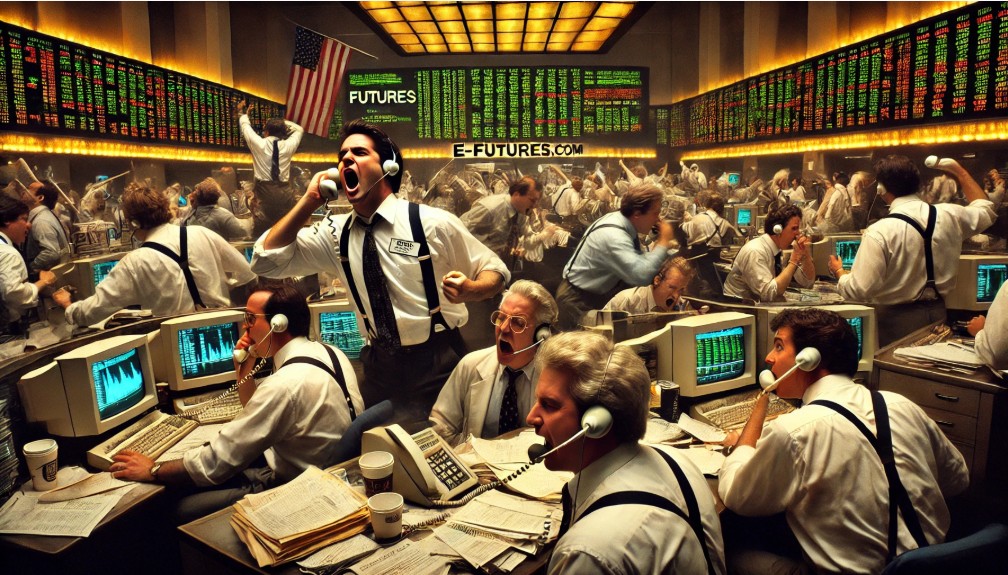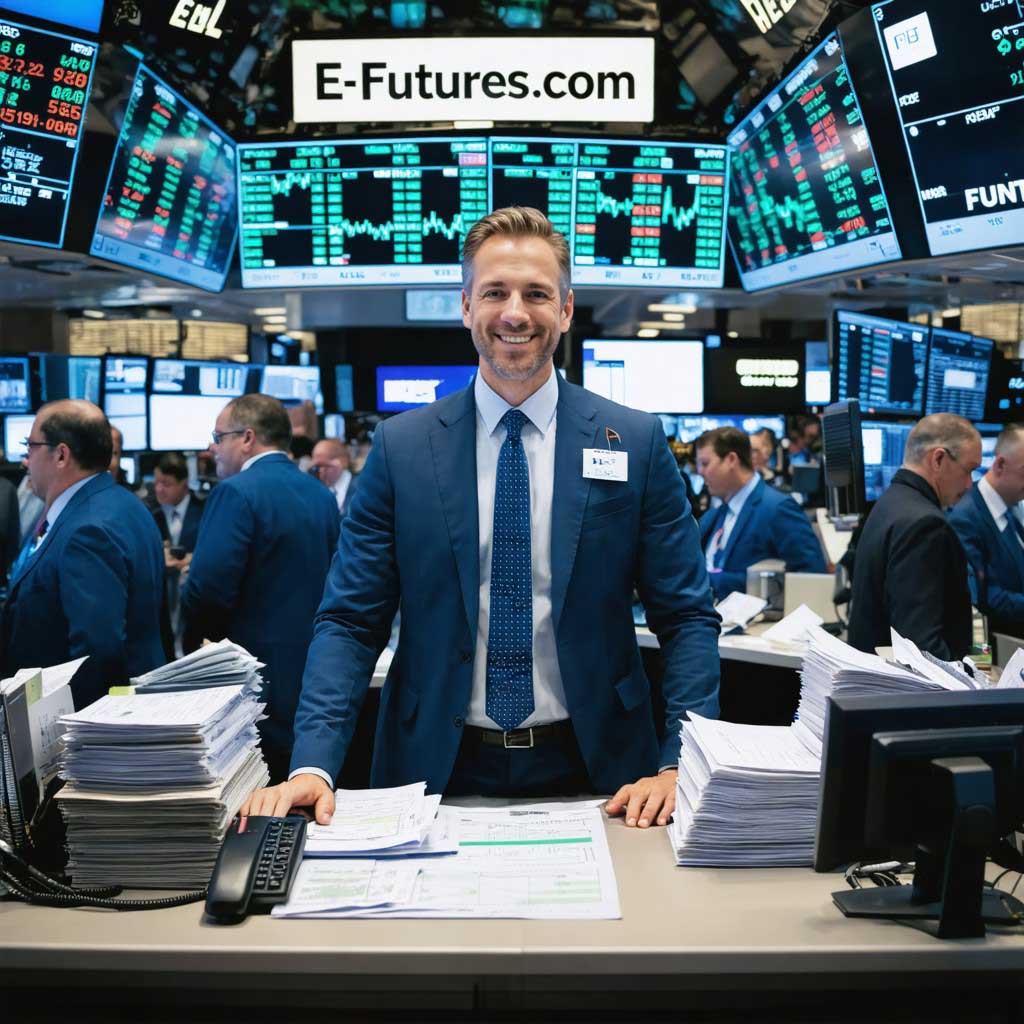The Nasdaq 100 futures contract has become one of the most popular financial instruments for traders seeking exposure to the U.S. stock market. The Nasdaq 100 index represents 100 of the largest non-financial companies listed on the Nasdaq Stock Market, making it a vital barometer of the technology and growth sectors. With rapid technological advancements, global economic shifts, and ever-evolving market dynamics, traders must stay ahead of trends and strategies to succeed in futures for Nasdaq. This article will provide ten essential tips for trading Nasdaq 100 futures in 2025, highlight key trends to expect, discuss critical reports traders should monitor, examine historical trends, and explain why E-Futures.com is an excellent choice for trading Nasdaq 100 futures contracts.
10 Tips for Trading Nasdaq 100 Futures in 2025
- Stay Updated on Federal Reserve Policy
- Interest rate decisions from the Federal Reserve significantly impact Nasdaq 100 futures. A dovish stance generally supports growth stocks, while a hawkish approach can lead to volatility and declines.
- Monitor Technological Trends
- Nasdaq 100 futures contracts are heavily influenced by the technology sector. Traders should closely follow advancements in artificial intelligence, cloud computing, and semiconductor developments.
- Use Technical and Fundamental Analysis
- Combining both analyses provides a robust strategy for predicting price movements. Key indicators include moving averages, RSI, MACD, and earnings reports of major Nasdaq-listed companies.
- Watch Economic Data Releases
- Reports like GDP growth, unemployment figures, and manufacturing indices provide insight into the economy’s health, influencing futures Nasdaq contracts.
- Follow Global Market Sentiment
- The Nasdaq 100 is sensitive to geopolitical events, global economic trends, and monetary policies in major economies, particularly China and Europe.
- Utilize Stop Losses and Risk Management Tools
- Given the high volatility of Nasdaq 100 futures, traders should always have a risk management strategy in place to mitigate significant losses.
- Leverage Liquidity to Your Advantage
- Nasdaq 100 futures contracts offer high liquidity, making them favorable for day traders and institutions alike. Understanding volume trends can help in making informed trading decisions.
- Use a Reliable Trading Platform
- Execution speed and order reliability are crucial in futures trading. Platforms like CannonX from E-Futures.com offer robust trading tools and fast execution.
- Understand Market Hours and Volatility
- Pre-market and after-hours trading can significantly impact Nasdaq 100 futures. Traders should be aware of how these extended trading hours influence price movements.
- Adopt Algorithmic Trading Strategies
- AI-driven and algorithmic trading have become more prevalent. Utilizing automated strategies can give traders an edge in rapidly changing market conditions.
What Trends Should Traders Expect from Nasdaq 100 Futures?
- Continued Volatility Due to Interest Rate Adjustments
- The Federal Reserve’s policy on interest rates will be a key driver of Nasdaq 100 futures trends. Any sign of rate hikes could lead to increased volatility.
- AI and Tech-Driven Market Growth
- The Nasdaq 100 index is heavily concentrated in technology firms. Innovations in AI, cloud computing, and biotech will likely push the index higher over time.
- Increased Institutional Involvement
- Hedge funds and institutional investors are increasing their exposure to Nasdaq 100 futures contracts, leading to larger volumes and faster price action.
- Correlation with Cryptocurrency Markets
- Many tech stocks within the Nasdaq 100 are correlated with the crypto market. Traders should be aware of movements in Bitcoin and Ethereum as potential leading indicators.
- Geopolitical Risks and Market Reactions
- S.-China tensions, supply chain disruptions, and international conflicts can have significant impacts on the futures Nasdaq market.
Key Reports to Watch When Trading Nasdaq 100 Futures Contracts
- Federal Reserve Meeting Minutes
- Non-Farm Payrolls (NFP) Report
- Consumer Price Index (CPI) and Inflation Data
- Earnings Reports from Major Nasdaq Companies (Apple, Microsoft, Nvidia, etc.)
- ISM Manufacturing and Services PMI Reports
- Jobless Claims Data
- Quarterly GDP Growth Reports
- FOMC Policy Announcements
- Market Sentiment Surveys and Volatility Index (VIX)
- Tech Sector-Specific Reports (e.g., Semiconductor Industry Reports)
Historical Trends in Nasdaq 100 Futures and Stock Index Futures
Nasdaq 100 futures contracts have historically exhibited strong upward trends during periods of economic expansion and loose monetary policy. The tech-driven Nasdaq 100 index has outperformed other indices like the S&P 500 and Dow Jones Industrial Average due to high-growth stocks. However, downturns such as the Dot-Com Crash (2000-2002), the Great Recession (2008), and the Tech Sell-Off (2022) have demonstrated the index’s susceptibility to market corrections.
Stock index futures, including Nasdaq 100 futures, generally follow cyclical trends based on economic conditions. For example:
- 1990s Boom: Nasdaq surged due to internet stocks.
- 2000-2002 Crash: Bubble burst, Nasdaq 100 lost over 70%.
- 2009-2020 Bull Market: Driven by Fed policy, Nasdaq 100 hit all-time highs.
- 2022 Correction: Inflation and interest rate hikes triggered a significant downturn.
Traders should analyze these historical trends to make informed decisions when trading futures Nasdaq contracts.
Why E-Futures.com is a Great Choice for Trading Nasdaq 100 Futures Contracts
E-Futures.com has built a reputation as one of the premier futures trading platforms in the industry. Here’s why traders of all experience levels should consider using E-Futures.com for Nasdaq 100 futures trading:
- Top-Performing Trading Platform – CannonX
- CannonX is an advanced trading platform that offers lightning-fast execution, deep liquidity access, and advanced charting tools, making it ideal for trading Nasdaq 100 futures.
- 5-Star Ratings on TrustPilot
- E-Futures.com has consistently received excellent reviews from traders, highlighting its reliability, support, and overall trading experience.
- Decades of Market Experience
- With a long-standing presence in the futures markets, E-Futures.com provides valuable insights and tools for traders navigating Nasdaq 100 futures contracts.
- Regulatory Compliance and Trustworthiness
- Fully compliant with NFA and CFTC regulations, E-Futures.com ensures transparency and security in all trading activities.
- Exceptional Customer Support
- Traders receive dedicated assistance, helping them make informed decisions when trading futures for Nasdaq.
Nasdaq 100 futures contracts continue to be one of the most lucrative and dynamic instruments in the financial markets. By staying informed on key trends, analyzing relevant reports, and utilizing a strong trading strategy, traders can effectively navigate the futures Nasdaq landscape in 2025. Whether a novice or seasoned trader, choosing a top-tier platform like E-Futures.com with its CannonX trading platform, high ratings, and strong reputation can make all the difference in achieving trading success.
To open an account with E-Futures.com, please click here.
Ready to start trading futures? Call US 1(800)454-9572 – Int’l (310)859-9572 email info@cannontrading.com and speak to one of our experienced, Series-3 licensed futures brokers and start your futures trading journey with E-Futures.com today.
Disclaimer – Trading Futures, Options on Futures, and retail off-exchange foreign currency transactions involves substantial risk of loss and is not suitable for all investors. Past performance is not indicative of future results. You should carefully consider whether trading is suitable for you in light of your circumstances, knowledge, and financial resources. You may lose all or more of your initial investment. Opinions, market data, and recommendations are subject to change at any time.
Important: Trading commodity futures and options involves a substantial risk of loss. The recommendations contained in this writing are of opinion only and do not guarantee any profits. This writing is for educational purposes. Past performances are not necessarily indicative of future results.
**This article has been generated with the help of AI Technology. It has been modified from the original draft for accuracy and compliance.
***@cannontrading on all socials








